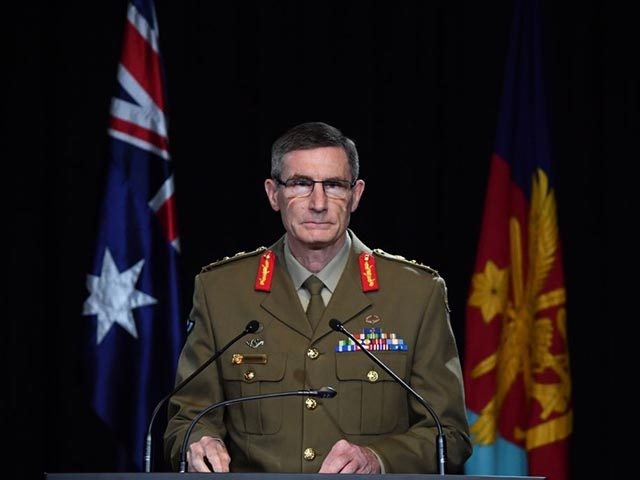The Australian Defense Force (ADF) released a report on Thursday detailing the results of a four-year investigation into alleged abuses by Australian troops in Afghanistan.
The report found 39 unlawful killings were committed between 2005 and 2016 by Australian special forces soldiers, 19 of whom will now face criminal investigation and the potential loss of military honors.
Only the report summary has been released to the public so far, while the details remain classified.
Australian Prime Minister Scott Morrison called Afghan President Ashraf Ghani in advance of the report’s release to apologize for its findings, expressing his “deepest sorrow over the misconduct by some Australian troops in Afghanistan.” He assured Ghani that follow-up investigations and prosecutions will focus on “ensuring justice,” according to Ghani’s office.
Morrison also warned the Australian people in advance that the report would contain “difficult and hard news.”
Australian General Angus John Campbell said there was “credible information of a war crime” in the documented cases where it “was, or should have been, plain that the person killed was a non-combatant.” Two of the incidents also involved conduct that could be classified as the war crime of “cruel treatment.”
“Today the Australian Defence Force is rightly held to account for allegations of grave misconduct by some members of our special forces community on operations in Afghanistan,” the general said.
Campbell said the conduct described in the report was “a disgraceful and a profound betrayal of the Australian Defence Force’s professional standards and expectations.”
Many of the soldiers named in the report belonged to a particular squadron of the Australian Special Air Service Regiment, which generally operated in small four- or five-man teams led by patrol commanders blamed for failing to uphold the standards of the service.
The squadron will consequently be struck from the Australian Army’s order of battle, reformed, and renamed. Campbell said striking the squadron was important because it will establish a “permanent record” of wrongdoing. He further asked for the meritorious unit citation given to the entire Special Operations Task Group for service in Afghanistan from 2007 to 2013 to be revoked and said he will consider revoking individual medals as well.
The investigators who prepared the report — based on over 400 interviews with Australian military personnel, support staff, and Afghans — made it clear that none of the decisions they flagged as criminal misconduct were honest mistakes made in the “heat of battle.”
In one of the practices condemned by the report, known as “blooding,” patrol commanders would require junior soldiers to execute a prisoner to get their first kills in Afghanistan.
The investigators heard testimony that deliberate efforts were made to conceal unlawful actions, from false statements on official reports to “throwdown” items — foreign-made weapons and gear that could not easily be traced back to Australian forces — planted on the bodies of the dead to make it appear they were killed in battle.
Campbell said there was a “distorted culture” among the troops that was “embraced and amplified by some experienced, charismatic and influential non-commissioned officers and their proteges, who sought to fuse military excellence with ego, elitism and entitlement.”
Although none of the alleged criminal actions were carried out under orders from senior ADF officers, Campbell said it was a “failure to unit and higher command” to allow the “toxic” culture described by the report to fester.
The Foreign Ministry of Afghanistan said the alleged war crimes described in the ADF report were “unforgivable” and disgusting. The ministry welcomed the report as “an important step toward justice.”
The independent Afghanistan Human Rights Commission said the report “clearly demonstrates that Australian forces engaged in murder and brutalization of Afghans, including children, through deliberate inhumane acts of violence behind which was a consensus that Afghan life, whether of men, women or children, had no inherent worth or dignity.”
Elaine Pearson of Human Rights Watch called for “swift and independent prosecutions” based on the report, but said the International Criminal Court (ICC) should only become involved as a “last resort” after the cases “come to Australian courts.”
Australian troops have been committed to Afghanistan since October 2001, serving as part of the NATO-led International Security Assistance Force (ISAF). NATO Secretary-General Jens Stoltenberg said on Tuesday that the ISAF will remain in Afghanistan for the foreseeable future, even though the United States will reduce its deployment by half as of January, and President Donald Trump expressed hopes that all American forces could be withdrawn by May.

COMMENTS
Please let us know if you're having issues with commenting.